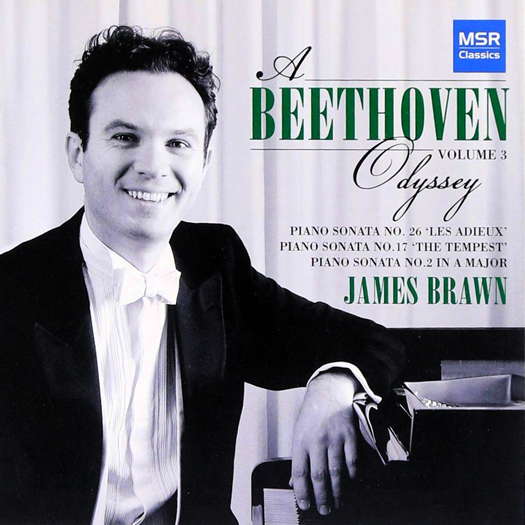- Nazis
- Harald Heckmann
- Nikolai Medtner
- Matt Scott Rogers
- Bacewicz: Piano Concerto
- Mozart: Violin Concerto No 4 in D
- Drunken Sailor tango
- Southam Hall
Modern Italian Music in Rome
Works by Francesco Pennisi, Goffredo Petrassi and Marcello Panni, reviewed by GIUSEPPE PENNISI
In this period of the year, one of Italy's major contemporary festivals takes place: the festival of the Rome based Nuova Consonanza Association. The festival spans the period 27 November to 20 December 2020. This is its fifty-seventh edition. The festival includes eighteen concerts; not all of them in Rome - eg the last one will take place in Palermo, which was a major centre of international contemporary music some fifty years ago. Other concerts are in Vienna and in Köln. A true international event. The title of the Festival is Laborintus 2.0 (Labyrinth No 2). It was planned in theatres and concert halls, but due to the pandemic, it is being held without audience and the concerts are streamed.
To inspire this year's festival is the labyrinth theme: 'Not as a place to get lost in the vain search for a destination - explains the President of Nuova Consonanza, Lucio Gregoretti - but as an opportunity to let go and follow several different paths under the guidance of one's inclinations'. A point of reference is Laborintus 2.0 by Luciano Berio, composed in 1965 to celebrate the seven hundredth anniversary of Dante's birth, and which takes its title from the poetic collection Laborintus by Edoardo Sanguineti. (This also opens the way to the 2021 Dante's celebrations of seven hundred years since Dante's death.)
Of the several concerts in the program, I report on that played on Wednesday 2 December 2020. Its title is Il Filo di Arianna (Ariadne's thread). Until 20 December 2020, the concert can be heard at YouTube.
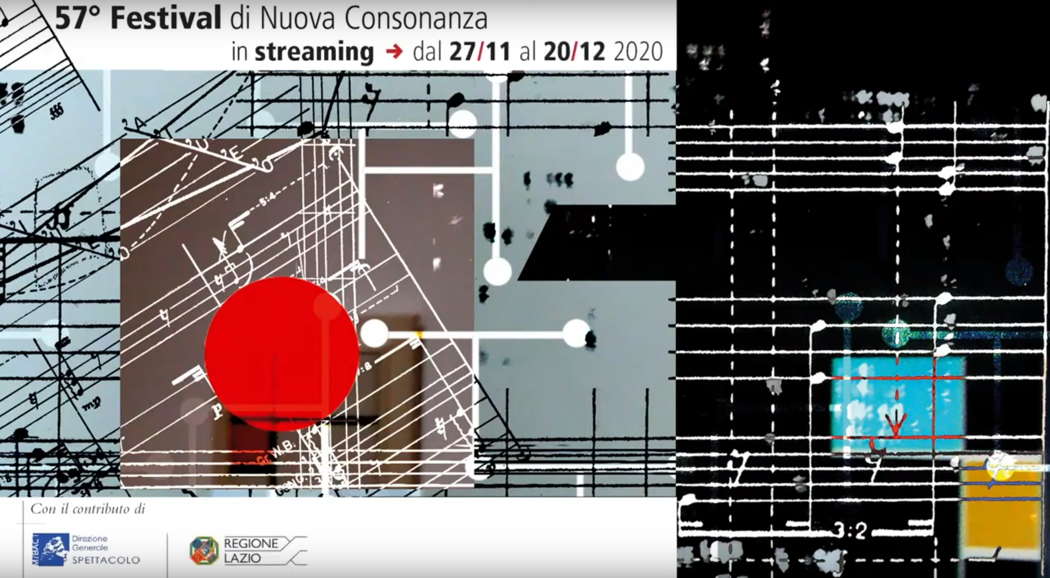
Online publicity for the 57th Nuova Consonanza Festival, 27 November - 20 December 2020
The concert pays homage to Francesco Pennisi on the twentieth anniversary of his death. He was a cousin of mine and a refined composer as well as a writer and a painter. He was one of the founders of Nuova Consonanza and an Academician of both the National Santa Cecilia Academy and the Rome Philharmonic Academy. I wrote about his very personal style here on 6 July 2018.
On the program were some of his significant pieces as well as music by Goffredo Petrassi and the world premiere of a new work by Marcello Panni. The Orchestra of the third State university of Rome (usually called Roma Tre) performed the concert.
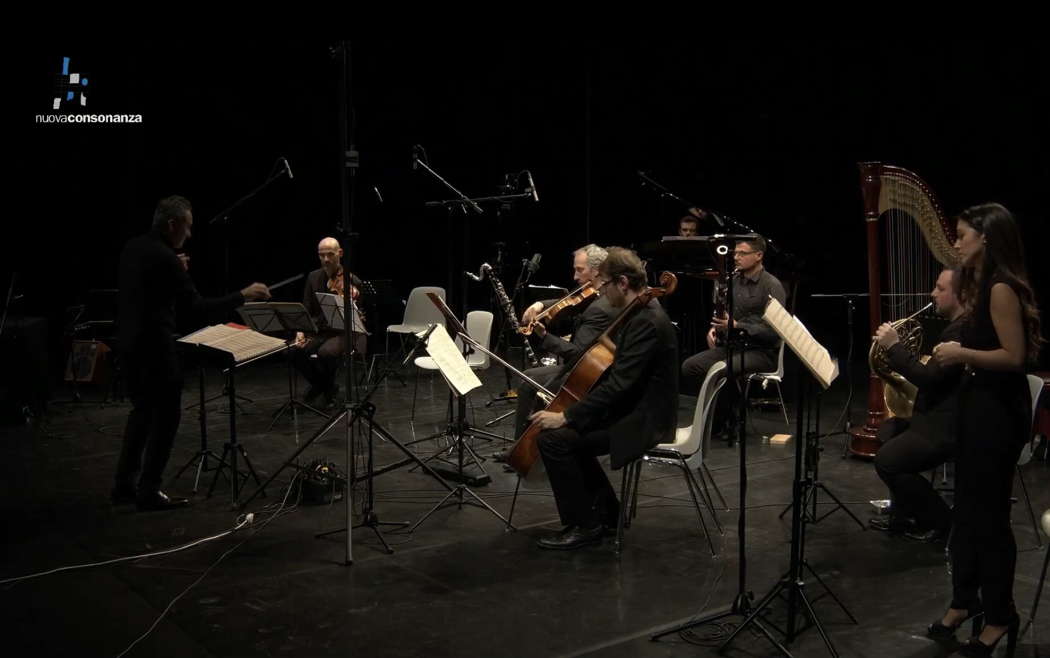
Sabrina Cortese, soprano (right) with Roma Tre Orchestra and conductor Gabriele Bonolis performing on 2 December 2020
Gabriele Bonolis was the conductor; the soloists were sopranos Sabrina Cortese and Chiara Osella, guitarist Luigi Sini and flautist Andrea Biagini. Before the concert, there was an interview with Marcello Panni on Francesco Pennisi.
The personality, music and aesthetics of Francesco Pennisi (1934-2000) have not lost their vitality, although twenty years have passed since his death. The sound of his fine and always elegant works still impresses today.
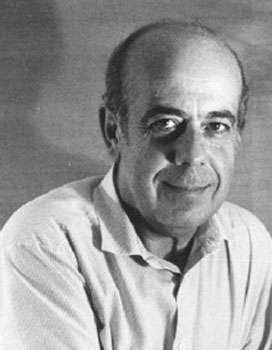
Francesco Pennisi (1934-2000)
Four compositions were chosen for this concert. The Wild Swans for soprano and seven instruments on an poem by William Butler Yeats draws the majestic and fascinating image of swans as well as the anguish of the poet who sees their immortal beauty in comparison to the finite time of his existence. The soprano and orchestra rendered the evaporating timbre of the music beautifully. Medea dixit is a work for soprano and eight instruments; it takes its cue from two fragments of the twelfth epistle of the Ovidian Heroides (that of Medea and Jason). Here the soprano and orchestra turned dramatic. Two instrumental pieces were on the program. Icaro a Capodimonte for guitar and string quartet was composed for the seventy-fifth anniversary of the Alessandro Scarlatti Association of Naples. It was inspired by three paintings by Carlo Saraceni preserved at the Capodimonte Museum: the small ensemble showed the great elegance of this short piece. Méliès for flute and guitar is part of a succession of fragments, as well as the formal organization of the larger composition, Le esequie della luna. Here the two soloists became real virtuosi.
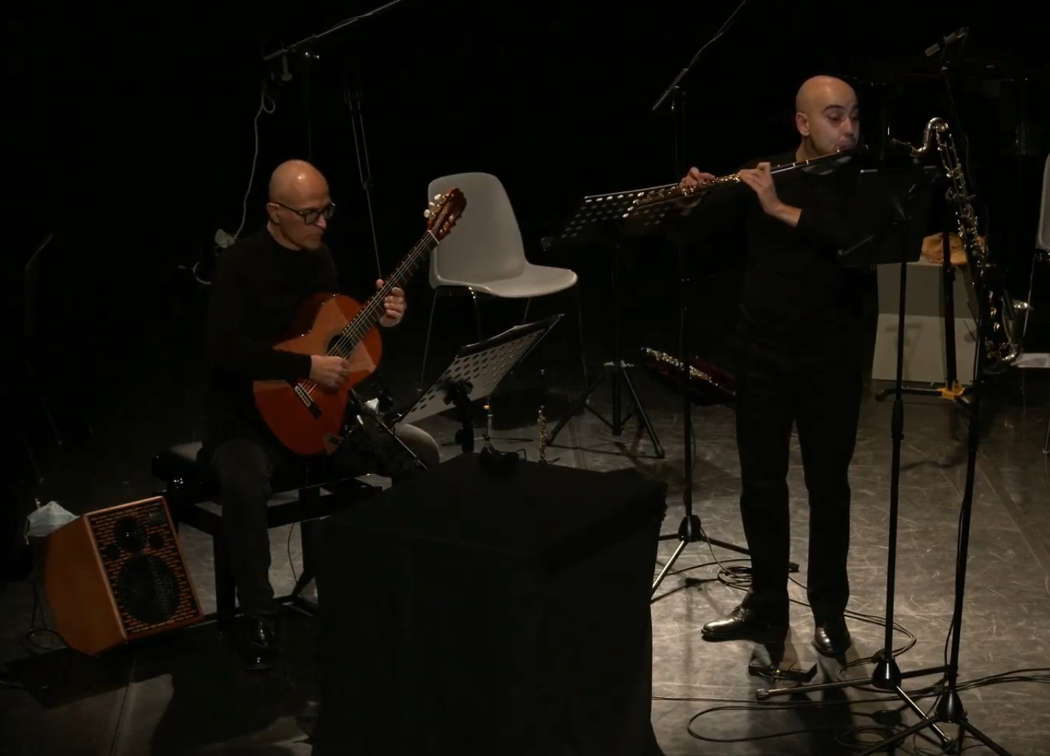
Luigi Sini, guitar and Andrea Biagini, flute
The homage to Pennisi is intertwined with the performance of Souffle by Goffredo Petrassi and two pieces by Marcello Panni who was Petrassi's student and also one of the elective interpreters (as conductor) of Pennisi. The first was Three Haiku for soprano and four instruments on texts by Bashō and Buson. The second was the world premiere of Commiato (Farewell) for voice and four instruments on verses by Omar Khayyam. Commiato was written in this year of COVID-19, during which Panni lost several very dear friends. The small ensemble rendered the pieces quite engrossingly.
Some seventy PCs were connected to the concert streaming - quite a success for experimental contemporary music.
Copyright © 4 December 2020
Giuseppe Pennisi,
Rome, Italy

FURTHER ARTICLES ABOUT TWENTIETH CENTURY MUSIC
FURTHER LIVE CONCERT AND OPERA REVIEWS


